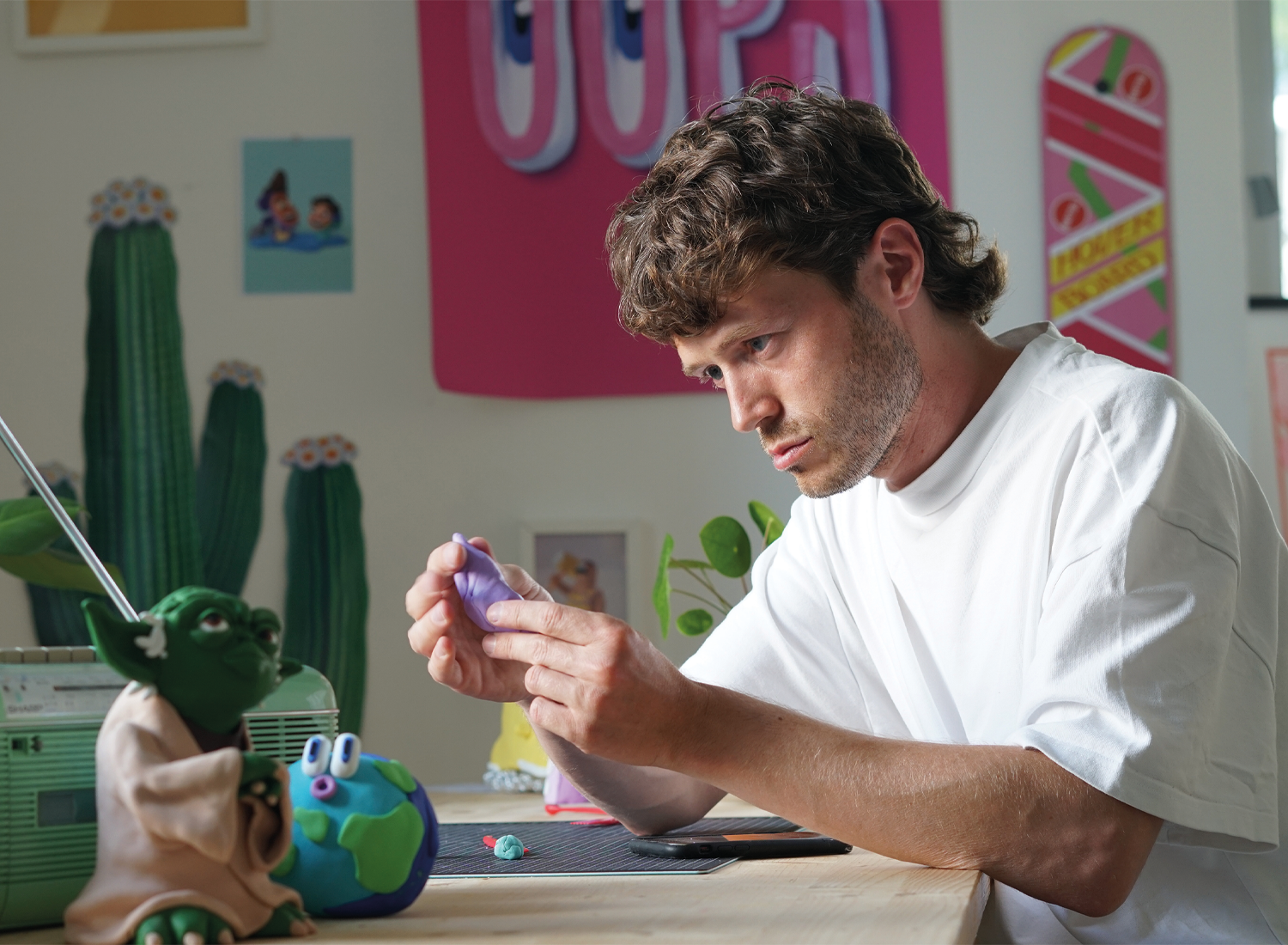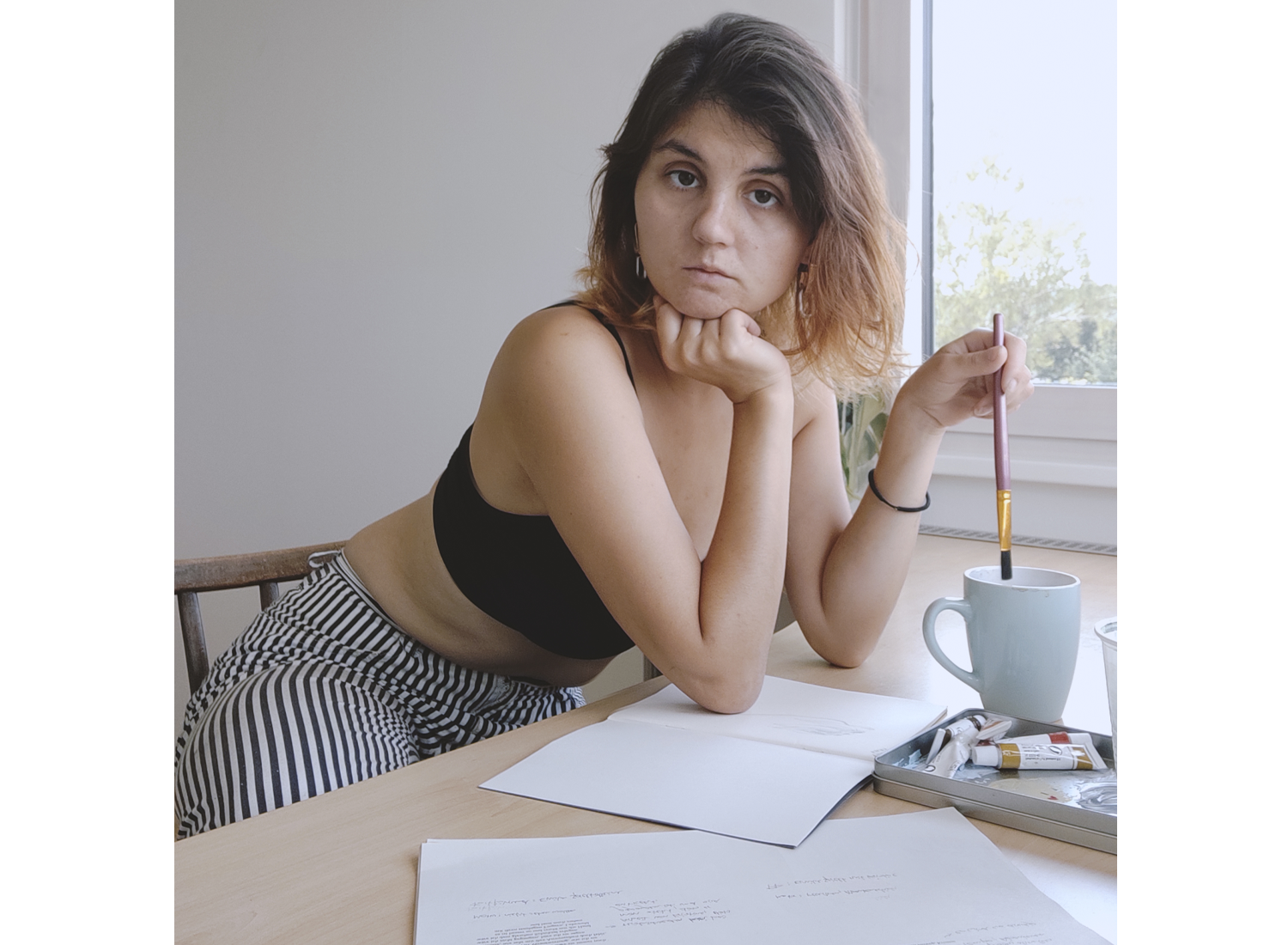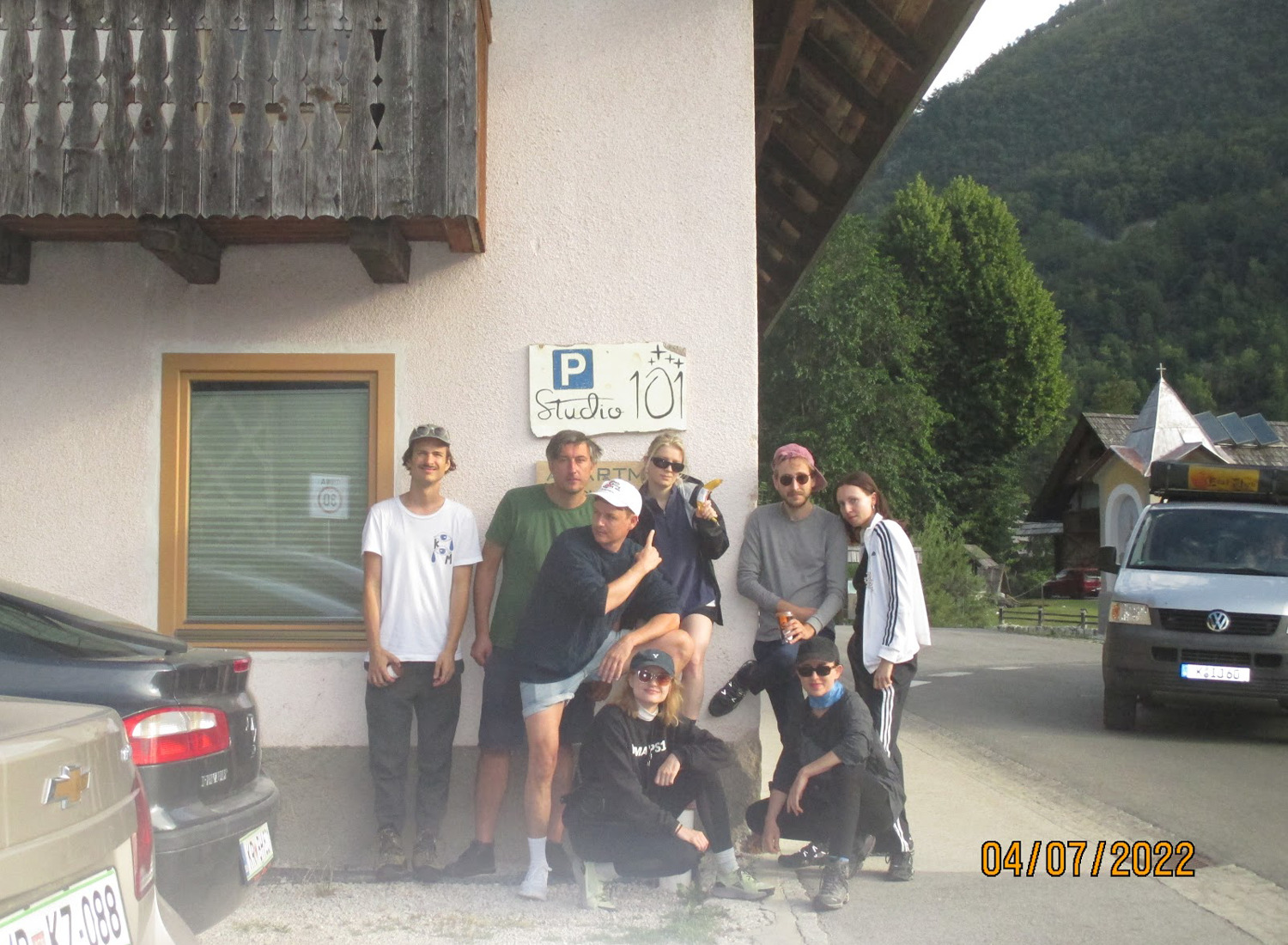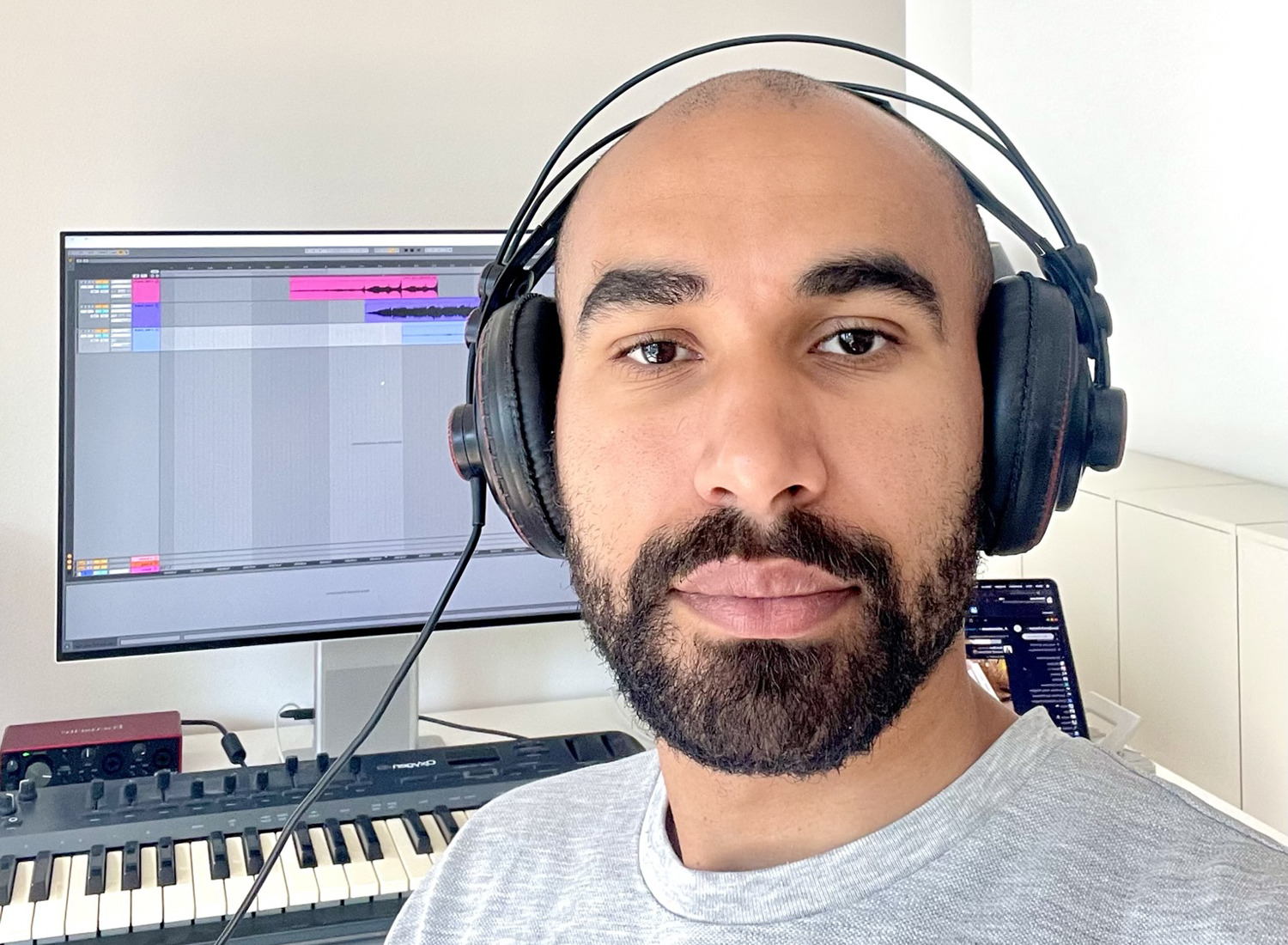Asking Creatives of Forward #1: What do you do when you run out of ideas?
Have you ever wondered about how other creatives work or deal with the difficulties of the creative industries? Welcome to “Asking creatives of Forward”, our new series in which we ask the creatives of Forward Network about their daily hustle, their techniques and other advice.
Forward Network is THE hub between brands and creatives that aims to enable successful collaborations and projects that outshine the competition. By now the network already counts about 40 creatives of 14 different fields ranging from photography, AR/VR, motion design, 3D, creative code, film, sound design, street art, lettering, AI, text and illustration.
The styles of our members are as diverse as their personalities and their ways of working. Since we want you to get to know them better, we asked them what their source for new ideas was, especially in times when they get stuck. So if you are in need of inspiration to get inspired, enjoy reading their techniques.
Subscribe to our newsletter to stay updated on the ever-growing network and find more info about joining as a creative or starting a project with the network here.
What do you do when you run out of ideas?
Marko Mestrovic: I talk to my fellow photographers in our studio, look through magazines to see what’s happening in the industry and most importantly I try to work on free projects. In spring we all went to Mallorca, booked a villa for all of us and just worked on free projects. Changing your environment helps a lot.
Robert Wagenlechner: If I run out of ideas & have plenty of time left: I take my mind completely away from the work and do some trivial or random stuff. It can be anything as long as it has nothing to do with the work. Taking a walk, reading, washing the dishes, listening to the radio, visiting the dog zone and making up names for the dogs, watching TV, calling someone and asking them about their day – anything. There’s a good chance that my subconscious mind picks something up along the way and will give it to me later in the form of a new idea. And if I run out of ideas & have no time left: I force myself to write down as much as I can, as fast as I can – without bothering about the quality of what I’m writing down. Just quantity. No quality. That way, I get a shit ton of (mostly shitty) ideas. But usually, within these (still mostly shitty) ideas, there’ll be something that turns out to be not shitty at all.
Andi Meier: I would now like to say that I first take a walk in the woods, doing sports or something similar. The reality is, after crying, I sit down at my desk, search the Internet and think and think and think until I have new ideas.

Monika Ernst: Sometimes I pull out the most crappy craft supplies and then I draw, paint or just smash stuff together. As I then try to make something that looks like it has a form, character or idea, my focus often shifts from walking the same path over and over again, to exploring and finding new ways of thinking. If I need a quicker solution, I find it very helpful to remind myself of what feeling I wanted to convey with the project initially. That method allows me to sharpen my view and get my focus back.
101: When we come to a point of spinning in circles in the creative process, the only thing that really helps, is to do something completely different for a while. We also like to get input from friends and colleagues that are not involved in the project – sometimes a new angle or thought can be very inspiring.
Lukas Diemling: I go for a walk/run/hike or invite some friends and cook for them. Cooking is definitely some of the activities that help me to get off work and be in the Moment. And sometimes I simply start the weekend earlier, life is too short to spend useless time in the office when you don’t get it together.
CIN CIN: Working as a team prevents us from being stuck creatively and running out of ideas. Through the years, we have gathered a lot of experience, so our way of developing concepts and designs can rely on a vast library of methods and references. However, finding a new approach and unknown solutions are, of course, the most challenging but interesting parts of our profession. We draw inspiration from all kinds of industries, like film, fashion, art, gastronomy, …

LWZ: Playing tennis really clears my head, after a game I barely can stand on my feet. The other people in our studio play football, ice hockey or basketball. So sport and getting out could be a possible strategy to get creative. And we like to cook together in our studio and eat with our friends from Huangart, Svenja Plaas and Skop on our ping-pong table and discuss everything and anything.
Lucas Christiansen: When I get stuck in a project and I run out of ideas, I try to put it aside for a while and focus on something else. For example, I put on a movie and when a little time goes by I mostly get inspired by little details, like a scene, a word, a song or whatever. I then write everything down that comes to my mind and try to transfer it into my project.
Bounty Studio: Really good ideas need to grow and most certainly don’t appear in front of an empty text-file. In the past the best ideas hit, when we were doing something completely redundant. Like go for a walk, ride the bike, cook or even clean. It may be the most stereotypical thing. But in many cases distance to the project helps. For personal projects we try to let ideas sit for a while, come back, check if they are still viable to us. Most of the time, this break will help the overall outcome. Creativity can’t be forced. It can be trained however. And that’s the goal, to stay with it and grow.
David Silva: I do exercise, I love to climb and sweat, and to feel my body pushing its own limits while bouldering. To stay away from the computer, and even away from paper and pencil, and focus on how I feel my body working, releases my mind and creates new and fresh space to come up with new ideas that used to be very exciting and defying.

Revkin: I don’t think that the problem lies with not having any ideas but rather not asking the right questions. I think that if there is a need for a creative solution there’s a multitude of possible approaches, be it active or passive. Having a clear framework helps you get playful with your material.
Maximilian Prag: Getting some distance and distraction – either changing to a different project I’m currently also working on or changing the medium completely – like from virtual environments to ceramics or sewing. Sometimes just a reset and restart with a blank file is enough. Also touching grass <3
David Adeoye: For me the first thing I do is shut down my computer, leave my phone at home and take a walk in nature. It resets my focus. On top of that nature sounds are a perfect basis for sound design. I love to use river sounds for otherworldly soundscapes for example.
Toni Eisner: I just try not to think about work. Ideas often come in the most unexpected situations.
Anna Hadaier: Life keeps me creative! Most projects I love come from sociopolitical issues, the rage about sexism at work or within the industry, missing abortion rights or long conversations with friends at 2AM. For me personally, creativity drives from real feelings and experiences, – sometimes that stems from having to stand up against catcalling, expressing rage about misogyny with a pen or sometimes there’s also just pure joy. If I run out of ideas I just try to take a break from forcing creativity and engaging more in life, friends and finding new things to do.
Friend: Friends.

Do you want to start a project or apply as a creative and join the network? Visit our website for more information.
The launch of Forward Network is supported by Vienna Business Agency.